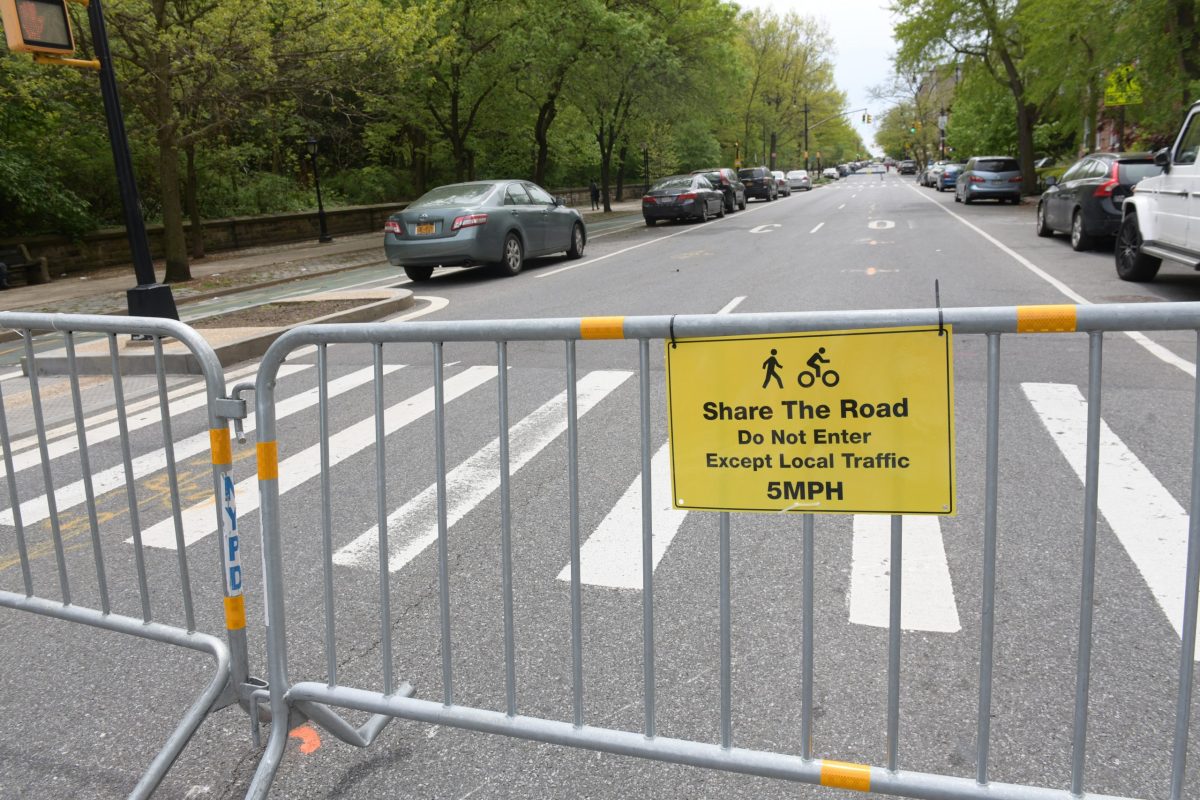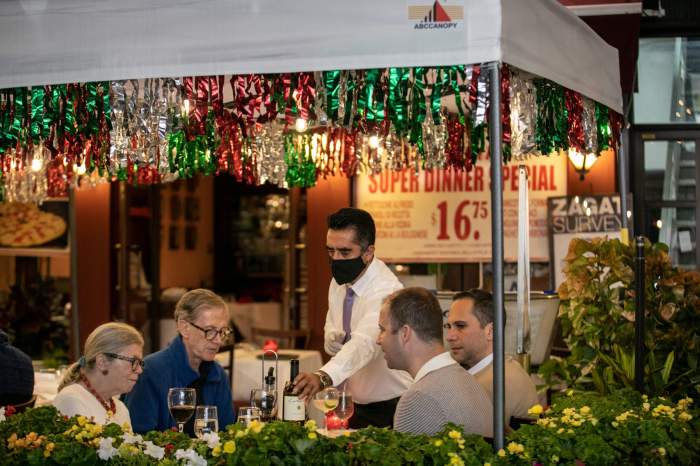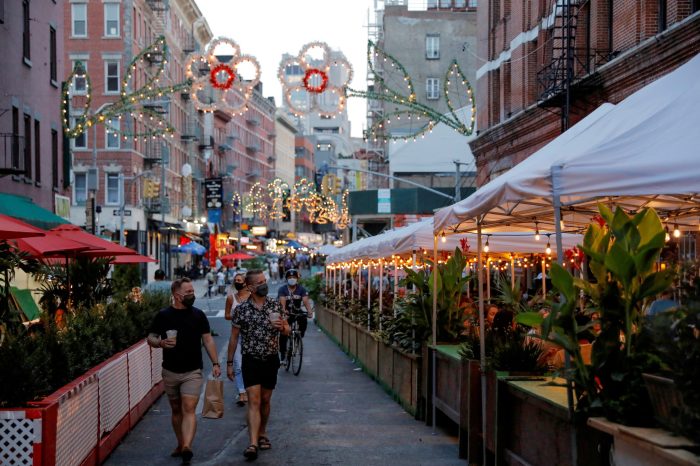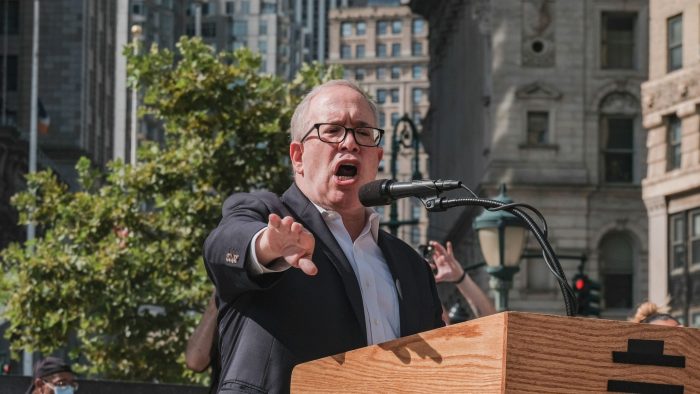Mayor Bill de Blasio signed into law Thursday a bill passed by City Council in recent weeks to make the city’s Open Streets program not only permanent, but also managed by the communities they are in.
During the May 13 signing event in Inwood on Thursday, de Blasio described the bill as something that was forged as a necessity of the health crisis, but proved to be essential in the long run for New Yorkers.
“I want people to remember, this is something that was created — I’ll give a lot of credit to our colleagues, to the City Council for their leadership — was created out of struggle, it was created out of crisis, it was created out of pain, but something beautiful came of it and something we learned together, we could do what we hadn’t imagined before,” de Blasio said.
The bill, sponsored by Councilwoman Carlina Rivera, will create a process in which community organizations can apply to manage open streets with approval from the city’s Department of Transportation, which will provide resources to about 20 sites in the five boroughs.
Under the legislation that is now enacted, Open Street corridors would be examined by DOT on yearly basis to decide whether or not it would be a benefit to communities to slate a permanent redesign.
“When I first introduced legislation in the council in April of last year to launch an emergency Open Streets program, it was at the height of the pandemic when it was really clear that we needed more space for socially distance recreation. I think we can all acknowledge the important role that effort played in so many of our communities,” Rivera said. “This enabled outdoor learning, it helped local businesses thrive and inspired entrepreneurs, and it allowed performing artists to share their talent. It really connected us to all of our neighbors, which I think was probably the most important piece of it. But it’s clear that we have to make important changes, and we need to do that to make it permanent and a successful staple of our city.”
On Dyckman Street in Inwood, Rivera said that the Open Streets program had set a new dynamic in her Lower East Side district as a gathering zone amid a pandemic that left many people isolated in their apartments.
“When it comes to rethinking what public space looks like, how we use our streets, how we make sure that children and families and small businesses can have safe places just like we are doing here on Dyckman — we still have seven months left in this City Council and in this administration, and we are going to continue to work together in this budget and legislatively over the next seven months … to make this a safe city that works for everyone,” Council Speaker Cory Johnson said.
Community groups can apply for the program here.






































